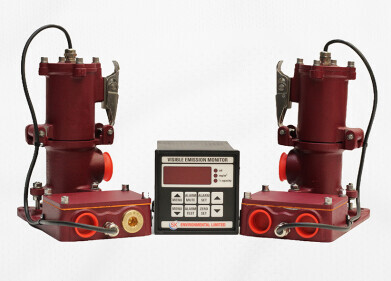Air Monitoring
Despite improvements, much of Europe still struggles to reduce air pollution
Sep 09 2023
New data suggests that the vast majority of the European population, around 98%, live in areas where air pollution levels exceed the World Health Organization (WHO) latest guidelines. This data, extracted from satellite imagery courtesy of the Copernicus Atmospheric Monitoring Service (CAMS), underscores an alarming situation: many Europeans are inhaling air that has the potential to be lethal over time.
Fine particulate matter, or PM 2.5, is a major concern. These are tiny particles, nearly 30 times finer than human hair, originating from various sources like vehicle emissions, industrial processes, and domestic heating. PM 2.5 is particularly dangerous because of its ability to penetrate deep into the lungs, causing various respiratory and heart diseases, and ultimately reducing life expectancy.
In areas like Central Europe, the Po Valley in Italy, and large cities such as Paris, Athens, and Barcelona, the situation is particularly severe. For instance, the PM 2.5 levels in some European regions hover around 25 micrograms per cubic meter – five times higher than WHO's recommendation.
Historically, European cities have been flagged for their deteriorating air quality. But this recent data is the first to provide a comprehensive, pan-European comparison, highlighting regions where conditions have improved and those which have deteriorated.
Interestingly, two regions with comparable pollution challenges, Northern Italy and Southern Poland, are on divergent paths. The Po Valley in Northern Italy remains a hotspot. In February 2023, cities like Milan and Verona recorded PM 2.5 levels surging past 75 micrograms per cubic meter. The region's topography, ensconced by mountains, inadvertently traps pollution. On the other hand, despite starting with similar high pollution levels, Southern Poland has shown noticeable improvement.
Poland's strategy, especially around Krakow, offers a glimmer of hope. A significant dip in PM 2.5 levels in the region can be attributed to Poland's commitment to modernizing home heating systems. Since 2018, levels have dropped by over 20%. The government's ten-year-long initiative to replace old, smoke-producing furnaces, colloquially termed "smokers", has paid off. As Polish journalist Piotr Siergiej reports, nearly 800,000 old furnaces have been replaced, and while 3 million remain, it's a step in the right direction. But it's not just about regulations and technology; public perception plays a significant role. "After years of constant effort," Siergiej writes, "the biggest achievement has been the shift in people's mindset." A decade ago, discussing air pollution in Poland was often dismissed.
However, Europe's proposed air quality rules are still a topic of debate. While the European Parliament's Environment Committee leans towards the WHO's strict guidelines of five micrograms of PM 2.5 per cubic meter, the new European rules consider a slightly relaxed ten micrograms. Though stricter than the current standards, many health experts and environmentalists urge for alignment with the WHO. Mark Nieuwenhuijsen of the Barcelona Institute for Global Health emphasizes that while the WHO focuses purely on health, European Union standards also consider economic implications.
Still, Europe's air quality is comparatively better than other global regions. Places in northern India, for example, see values soaring to 100 micrograms per cubic meter. But even Europe's relatively better air has profound health implications. Adopting the WHO's stringent standards could potentially prevent 100,000 pollution-induced deaths annually.
So, Europe is at a crucial juncture. There's evidence of progress, as seen in Poland, but regions like Northern Italy remain concerning. The path forward requires not just stringent policies but also a collective change in perception and sustained commitment to a cleaner future.
Digital Edition
IET 34.2 March 2024
April 2024
Gas Detection - Biogas batch fermentation system for laboratory use with automatic gas analysis in real time Water/Wastewater - Upcycling sensors for sustainable nature management - Prist...
View all digital editions
Events
May 03 2024 Seoul, South Korea
May 05 2024 Seville, Spain
May 06 2024 Minneapolis, MN, USA
May 13 2024 Munich, Germany
May 15 2024 Lund, Sweden


















